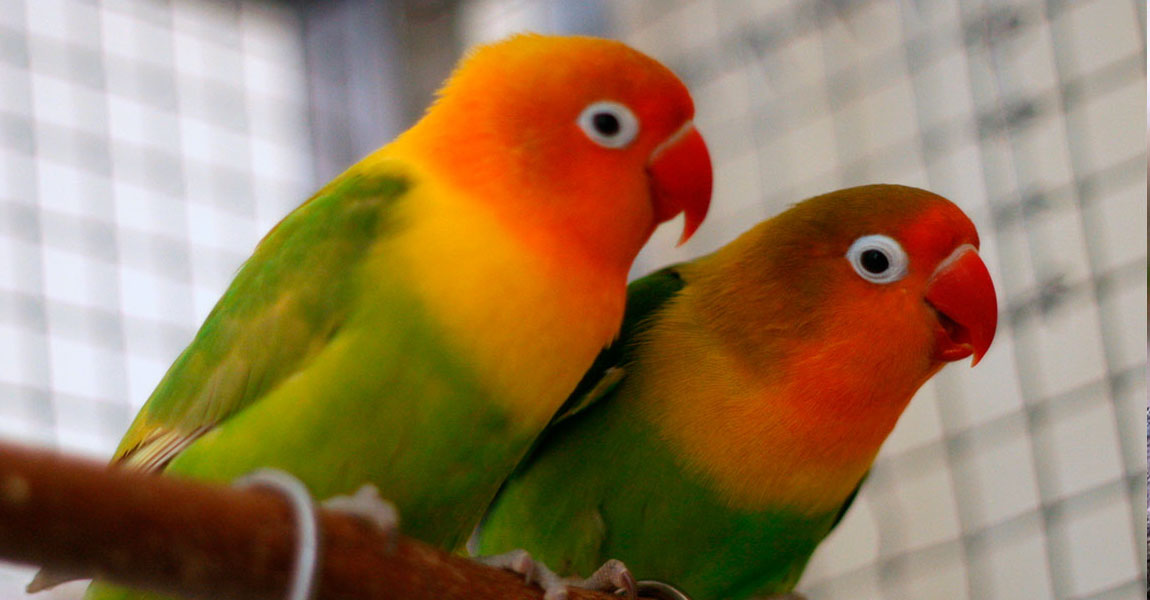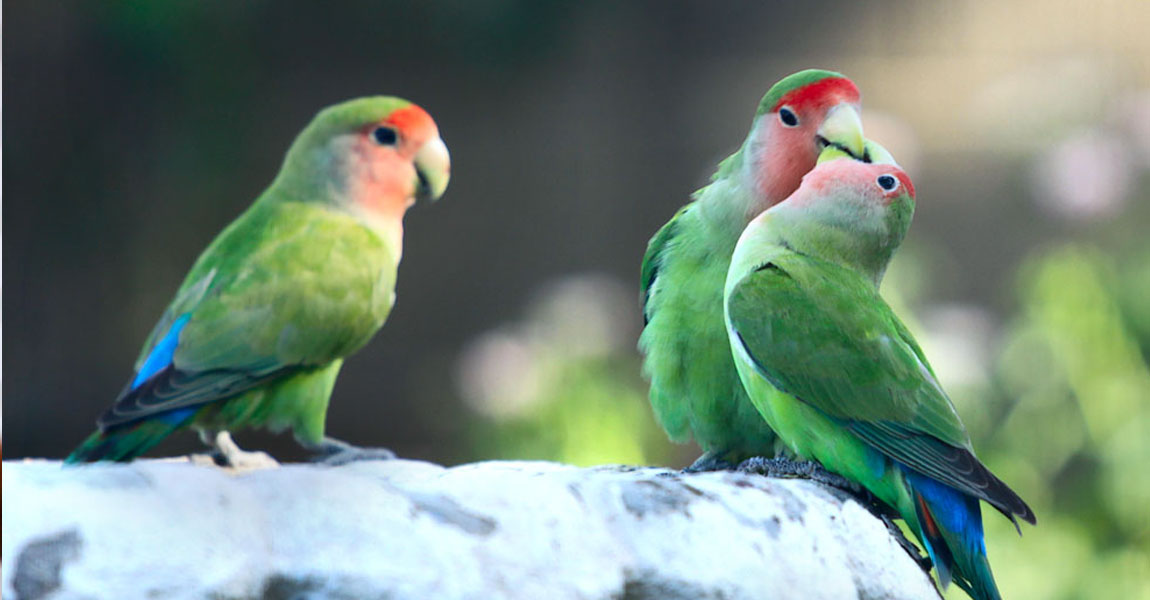Introduction:
Providing proper enrichment and stimulation is essential for the well-being of love birds. These intelligent and social birds thrive when given opportunities to explore, play, and engage in mentally stimulating activities. In this article, we will explore various ways to enhance your love birds' environment and promote their overall happiness and cognitive development.
Cage Setup and Environmental Variety:
Start by creating a stimulating environment within your love birds' cage. Provide a variety of perches with different textures and thicknesses to promote foot exercise and prevent boredom. Include natural branches, ropes, and ladders for them to climb and explore. Offer a range of toys with different colors, textures, and functions, such as bells, swings, and puzzle toys. Rotate the toys regularly to maintain novelty and prevent monotony.
Foraging Opportunities:
Love birds are natural foragers, so incorporating foraging activities into their daily routine is highly beneficial. Hide treats or small portions of their regular food in various locations within their cage, using foraging toys or paper cups. This encourages their natural instincts and mental stimulation as they search for and retrieve their rewards. You can also use foraging balls or puzzle feeders designed specifically for birds.
Social Interaction:
Love birds are highly social and thrive on companionship. Interaction with their human caregivers and fellow avian companions is crucial for their emotional well-being. Spend quality time with your love birds outside of their cage, allowing them to explore their surroundings while supervised. Engage in gentle handling, talking, and playing to build trust and strengthen your bond. Consider getting a second love bird to provide companionship, but ensure proper introductions and compatibility.
Flight Time and Exercise:
Love birds are active and agile flyers, so providing them with regular flight time is essential. Designate a safe and secure area, such as a bird-proofed room or an enclosed aviary, where your love birds can spread their wings and explore. Supervise their flight sessions to ensure their safety and prevent accidents. Flight time not only provides exercise but also boosts their mental and physical well-being.
Auditory Stimulation:
Love birds have a strong sense of hearing and enjoy auditory stimulation. Play soft music or nature sounds in the background to create a soothing atmosphere. Additionally, offer audio enrichment by imitating their natural vocalizations or using recordings of other love birds. This can elicit responses and engage them in vocal interactions.
Environmental Exploration:
Love birds are curious creatures and enjoy exploring new environments. Provide supervised out-of-cage time in bird-safe areas, allowing them to investigate new toys, perches, and play areas. Offer safe materials for shredding, such as untreated paper or bird-safe vine balls, to satisfy their natural urge to chew and explore.
Learning Tricks and Behaviors:
Love birds are capable of learning tricks and behaviors through positive reinforcement training. Teach them simple commands like "step-up," "wave," or "turn around" using rewards and repetition. Training sessions provide mental stimulation, build trust, and strengthen the bond between you and your love birds.
Conclusion:
Enriching and stimulating your love birds' environment is vital for their overall well-being and happiness. By providing a diverse and engaging environment, incorporating foraging activities, allowing flight time, promoting social interaction, and offering positive reinforcement training, you can ensure that your love birds lead a fulfilling and mentally stimulating life. Remember to observe their preferences and adapt enrichment activities accordingly, ensuring a healthy and joyful existence for your beloved feathered companions.





